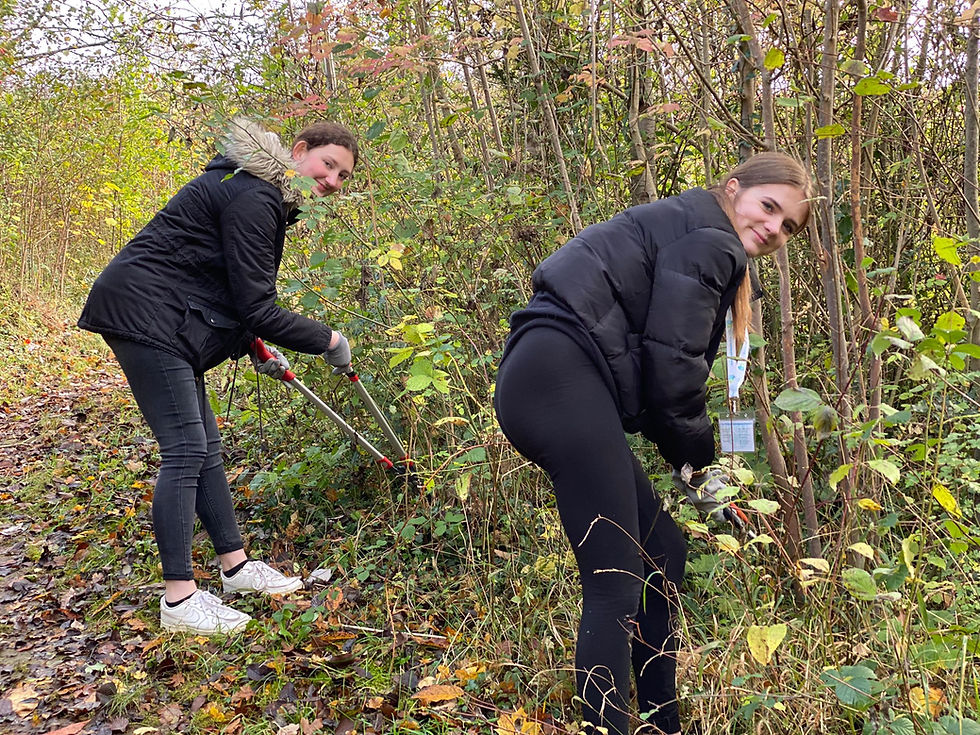How can young people benefit from volunteering?
- Yes Futures
.png/v1/fill/w_320,h_320/file.jpg)
- Dec 21, 2022
- 3 min read
At Yes Futures, we’ve been delighted to see our students supporting their communities over the last few weeks on their Play Your Part trips. Through a day of volunteering at a local community project, students learn the benefits of giving back to their community and develop key employability skills, such as communication and resilience.
Getting involved in the community is a great way to become a more well-rounded and self-aware member of society. Many people only think about the benefits of volunteering on adults, but students of all ages can also benefit greatly from volunteering within their community.
Why is it important for students to volunteer & what benefits can they gain from it?
The act of volunteering can sometimes be intimidating to students. But there are many advantages to getting them out of their comfort zone and encouraging them to give back to their community.
It’s also worth noting that one of the key requirements of Ofsted’s new personal development framework is that schools must prepare their students to be “responsible, respectful and active citizens who contribute positively to society.” Encouraging students to support their local community is a popular way for schools to meet this requirement, whilst encouraging students to develop their character and learn skills to help them flourish in society.
But what skills do students gain from volunteering?
1) Positive Self-awareness
Self-awareness is one of the four essential skills we focus on at Yes Futures. Why? Because knowing your values, strengths and weaknesses is key to success, both in and out of the classroom.
By volunteering, students can gain a greater understanding of their strengths, such as building relationships with new people, or being able to complete certain tasks. It’s likely that students will receive feedback from fellow volunteers or their volunteer supervisor, helping them to recognise their existing skills and learn what they can do to improve.
Doing kind deeds for others also tends to leave students with a sense of accomplishment and pride within themselves, leading to greater self-esteem and the ability to more easily identify their strengths.
2) Developed life skills
Giving back to the community also helps develop students’ practical and soft skills, preparing them for different environments that they will encounter in the future. They will have the chance to meet new people within their community, practice their networking and communication skills, and become more well-rounded individuals, ready to make positive impacts in their society. New interests have the potential to be sparked, and students will begin to see acts of service as a fun and kind way to be a positive member of their community.
3) Improved mental wellbeing
Improved mental health is also a positive takeaway that most students experience after volunteering. This act of kindness can help reduce stress and improve students’ mood as well as self-esteem.
Because volunteering requires an individual to selflessly donate their time, it can help develop students’ sense of inclusion, belonging, and importance within their community. It can also give them a deeper appreciation for their community, as they will learn more about the organizations that serve the world around them.
The sense of belonging that volunteering stimulates can also further boost students’ happiness because it allows students to create a genuine connection with others. After the experiences of lockdown, I think we can all agree that social interaction is definitely key to our mental wellbeing!
How does Yes Futures integrate volunteering into their programmes?
At Yes Futures, we believe in doing whatever we can to empower students to reach their full potential. Our personal development programmes are designed to support students to believe in themselves and develop key life skills, to prepare them for whatever futures they choose.
Our Play Your Part day is one of three immersive trips on our programmes, where students support a community project that needs their help. Whether it’s cutting back bramble, helping out at a foodbank, or looking after the animals at a local farm, students gain key skills outside of the school environment and learn the benefits of giving back to their community. Many students continue to volunteer with their project even after the programme has finished!
Our Play Your Part trips are an integral part of our Yes Futures programmes. To find out more about our programmes could support your students, please contact our Acting Chief Executive, Sophie Bartlett, on sophie@yesfutures.org.

.png)



留言